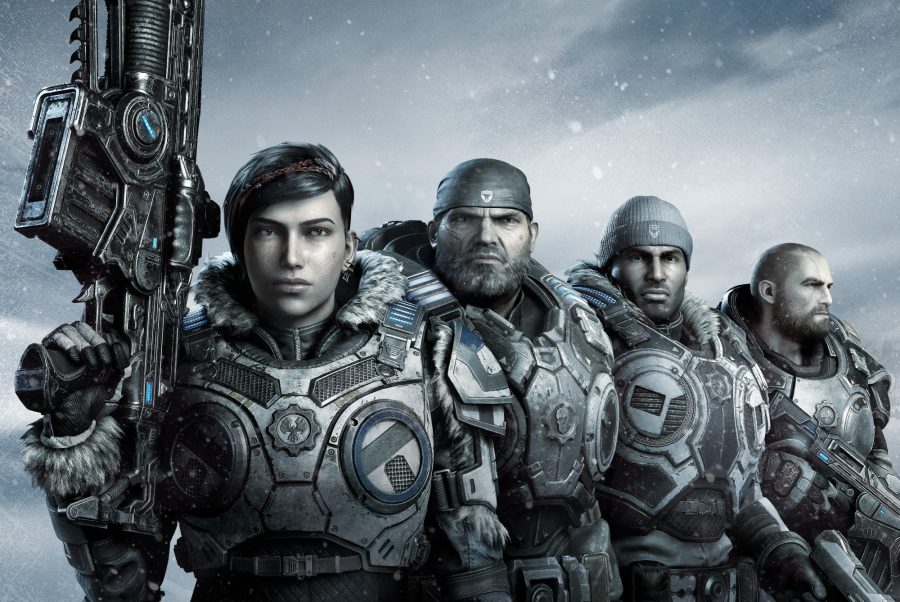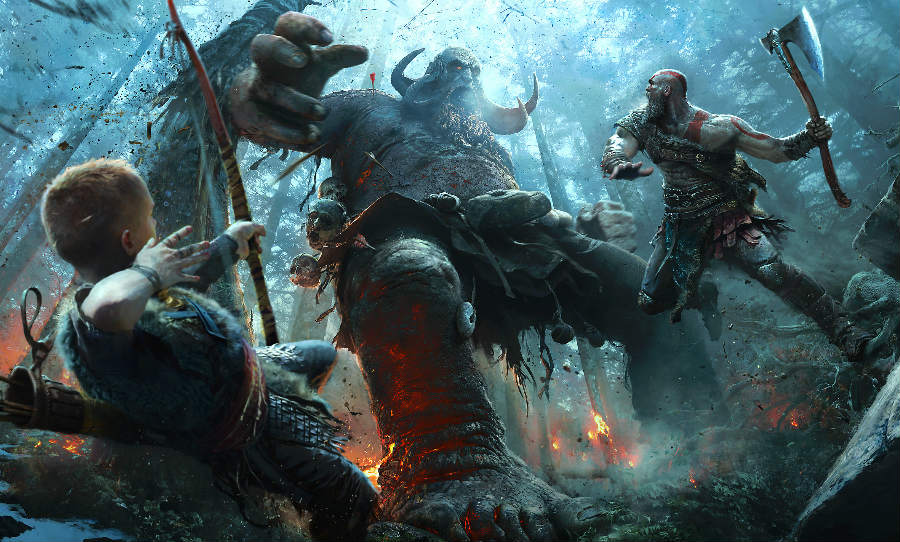People have always been fascinated by power. Though it wasn’t until the first Superman comic in 1938 that it was sold for 25c that it was widely fantasised over by children. While it was always a dream to stand in the red boots of Superman and possess infinite power, it has never been more realistically accomplished than in today’s gaming industry.
Name a superhero and they’ve got a game, and that’s not even to mention Halo’s Master Chief, who constantly enforces the ‘lone wolf’ complex putting near-infinite power in the hands of you, the player. So why is Western gaming culture obsessed with ultimate power and becoming the hero?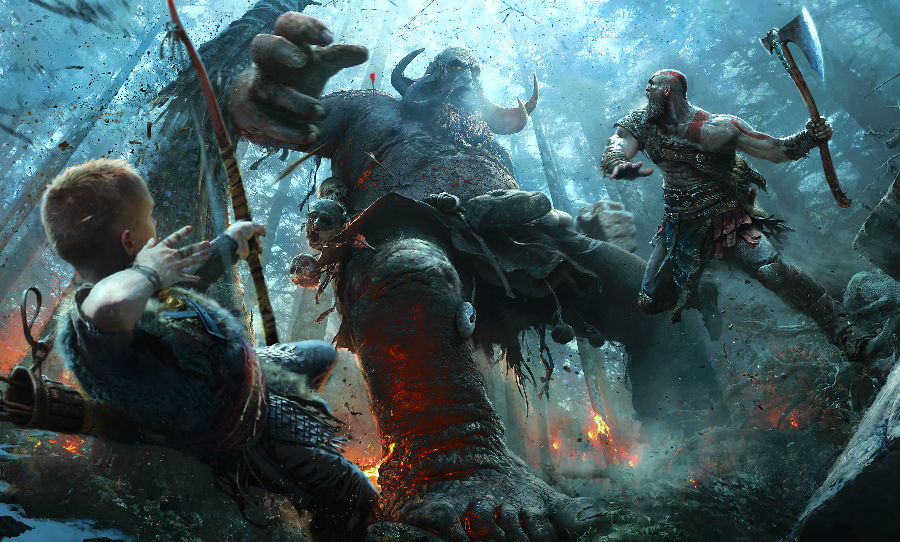
Let’s take a look at how gaming defines the hero complex by putting endless, unachievable power in the hands of the player and manipulating their sphere of existence.
The Lone Wolf
The hero complex is a relatively old phenomenon, though it has never achieved the same magnification until the advent of gaming. From superheroes like Batman and Spiderman to everyday troopers like Wolfenstein’s Blaskowicz and DOOM’s Slayer, players can exist, sometimes for days on end, in quasi-realistic virtual representations of these worlds.
While Batman and Spiderman are inherently third-person games, the hyper-realisation of self within first-person shooters is powerful – and more or less a pre-requisite to their existence. Who doesn’t want to sling webs around New York City, or empty lead into the contents of hell?
In all cases, these heroes are faced with a clearly defined villain – Joker, Goblin, The Covenant or The Underworld – who initially possesses far greater power than the protagonist and proceeds to bully and do evil unto them. Thus, the game sardonically places an omnipotent collection of skills into the player’s greasy hands from the get-go sends them on their way.
While this is also a recipe for fun, it simultaneously presents a deeper threat to the human psyche. Constantly granting people the satisfaction of singular supreme power leads people to the narcissistic hero complex.
The true constant here is the concept of the ‘lone wolf’. Halo’s Master Chief epitomises this. The supremely powerful hero emerges from the shadows fully formed, inhumanly capable, and remains the only key to salvation from a bewildering threat. The plot instantly elevates Master Chief above the rest of the inhabitants of the game’s world and thrusts him into the spotlight of salvation.
From the get-go, the game constantly enforces the concept that the player is a military miracle, capable of overcoming obstacles that only a Master Chief can. Your actions become legend across the universe, to the extent that Covenant ‘grunts’ flee at the very sight of you. Throughout the game’s narrative, Master Chief even single-handedly defeats an entire parasite race called the Flood while beating back waves of Covenant with his other hand. The game enforces the singular premise that you are superior above all others, indeed that you are the most important person in the universe.
Suffice to say, it is the ultimate ego-stroking experience, and in a world of instant gratification and electronic validation, it’s no wonder there is a mainstream audience who fetishize these fantasy lives of power.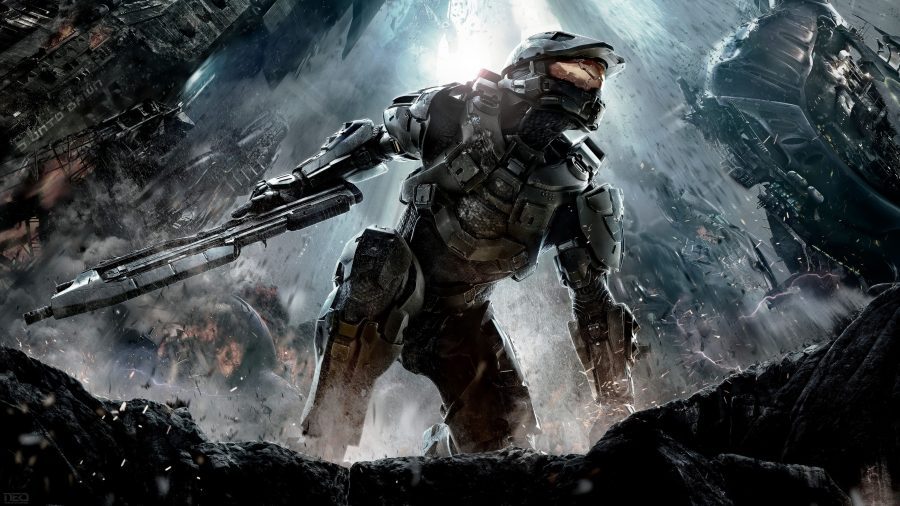
Hero Syndrome
Hero Syndrome is a very real condition that afflicts people around the world. It’s an unconscious need to be validated and elevated for your actions of goodwill, though it often has adverse results. Occupations such as firefighters, nurses, and lifesavers are often highly susceptible to Hero Syndrome, causing risky and dangerous scenarios in order to resolve them and receive recognition. A classic example: a firefighter lighting a fire only to put it out and be recognised as a hero.
While games like Halo, God Of War, and DOOM do not necessarily promote the cases of Hero Syndrome mentioned above, the link is clear. The focus on omnipotence in a universe that revolves around the player can no doubt inflate narcissistic tendencies.
Playstation’s version of Master Chief is Kratos, the God Of War. The franchise has seen 14 entries since its origin in 2005 and in each saga, Kratos is killing gods. From the Greek pantheon to Norse mythology, Kratos is in the business of deicide, and business is good. As far as power fantasies go it doesn’t get more potent than this. Kratos is one of the most OP characters in gaming history and an archetypal lone wolf.
Now in 2020, we see the beloved DOOM franchise heating up the bellows again as Doomguy heads back into the hell to single-handedly destroy anything that breathes. While slaying every demon in the underworld by yourself may sound like fun it amplifies the concept of the lone wolf hero, a concept inherently divergent from reality. There is no such thing as a lone wolf in nature. It’s romantic in every sense.
Nevertheless, the Western hero complex is inherently predicated upon taking the place of one supremely powerful being and destroying all evil. Along with inflating the ego in a host of ways, it also doesn’t promote teamwork, skilful mastery, or even interesting narrative arcs for that matter. How fun can a game be if you know the main character will never die?
In the future, it would be nice to see the Western market embracing more hero games of co-operation, well-earned skill-based mechanics, and semi-realistic power standards. After all, don’t we all need a little help sometimes?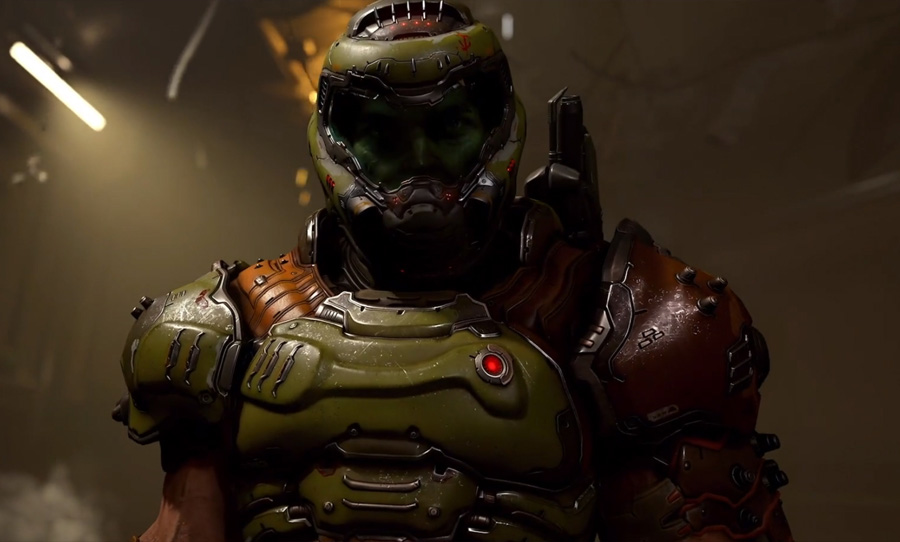
Co-op and civil responsibility
On the other end of the spectrum, you have games like Sims and Zoo Tycoon. These god simulators are an extension of aforementioned games yet they inject a sense of moral and civic responsibility. At their core, they offer players an increased sense of duty to virtuous action with no substitution in fun.
Does anyone uphold these moral standards? It’s unlikely, but that’s where the fun begins. By offering complete freedom to the player, it implements a god complex and disparages the autonomy of civic choice. This endless sandbox of mayhem occupies the other side of the coin. By placing players in inherently unstoppable positions of power they can unleash unwieldy chaos in a world of zero responsibility. However, there are two significant differences.
Zoo Tycoon and Sims still promote civically ethical landscapes for a family, human, or animals. They are educational, and it can give a great sense of satisfaction to see a vast monopolised operation working in cohesion due to great effort and care.
In the middle, walking the tightrope between hero and god complex is co-operative play. By introducing elements of team play, the destructive effects of the hero complex are dashed and replaced with pure fun. Every Halo campaign can be played completely in co-operation. When players are tasked with overcoming complex situations together, the problem-solving is considerably more tactile.
What was once a run and gun slaughter-fest is now a primarily more challenging series of engagements that must be considered and tackled in tandem in order to overcome them and achieve success.
On the other side of Microsoft’s most testosterone-fuelled hero games is Gears of War, which initially kickstarted the Xbox console alongside Halo. While Halo enforces the sole invincibility of Master Chief, Gears of War sees the player command Marcus Pheonix, a legendary Coalition soldier leading a team of four. Co-operative play is essential as well as looking out for your teammates, and even reviving them they go down.
This promotes an entirely different mindset beyond self-preservation. You need to tactically position yourself alongside squad members and keep their relative positions in mind at all times in relation to your enemies. Throughout the course of the game, you become closely attached to each character and imminently care about their survival.
While Halo and Gears of War deliver an unsurpassed level of fun, it is undoubtedly teamplay that enforces more positive notions of gaming and indeed, storytelling.